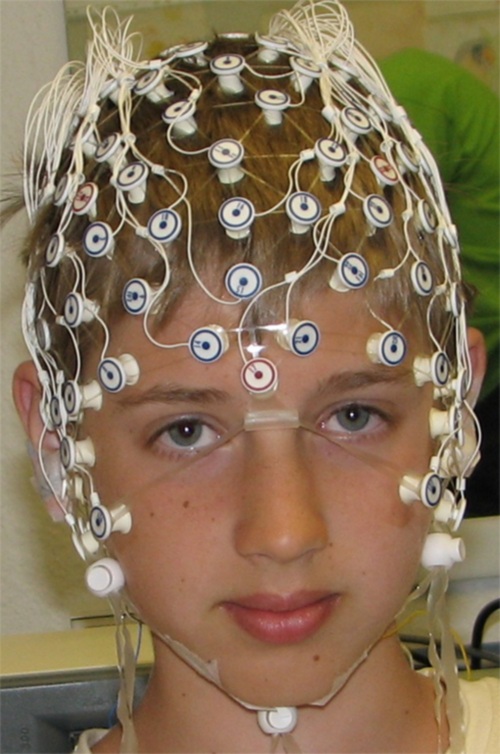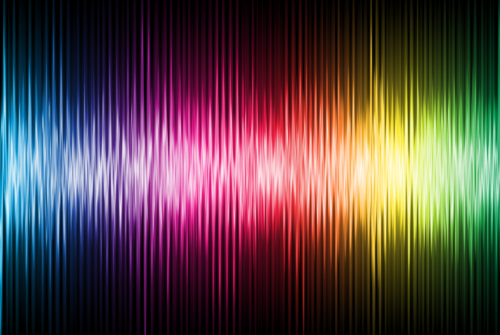Results of study indicates a novel approach to improving the quality of one’s sleep might be forthcoming
While past research on the topic of sleep indicates that
applying a “gentle electric current” can ease the brain into
deep sleep mode, improve overall sleep quality, and increase
memory retention, the technology has failed to take off, due
in large part to there being no real audience out there
interested in applying electrodes to their head for a better
night’s rest.

Patient with electrodes attached to
his study for a sleep study. (Via:
frontiersin.org)
As a result, researchers have long been searching for
alternative methods to accomplishing all of the
aforementioned benefits sans electrodes.
A breakthrough in this regard is believed to have recently
been discovered by a group of German researchers who
conducted a sleep study using a peculiar new application
referred to as “pink noise.”
What is pink noise?
The term refers to a random signal that is filtered so as to
have equal energy per octave. In order to keep the energy
constant across all octaves, the signal’s power spectral
density deceases as its frequency increases. This sort of
balancing act is why “pink noise” is also sometimes referred
to as “1/f noise.”
In terms of decibels, the decrease is about 3 dB per octave
on the magnitude spectrum.
As for the name, “pink noise” is a reference to the color
that comes from the visible light spectrum which — you
guessed it — turns pink when a similar spectral distribution
is applied.

The study
The group of German researchers recruited 11
participants who spent two nights in a sleep lab. On the
first night, as each one of the 11 approached deep sleep,
the researchers played pink noise that was specially
synchronized to match the brain rhythm of the individual.
As a control, no sound was played on the second night.
To measure the effectiveness of the technology, the 11
participants were shown 120 pairs of words before going to
sleep on both nights. The following morning, they were
individually quizzed to see how many pairs they could
recall.
The results
The study showed that the pink noise lengthened the time
each participant spent in “deep sleep” and also increased
the size of the subject’s brain waves during that time.
Now, it should be noted that slower, longer-lasting brain
waves — characterizations of deep sleep — are associated
with information processing and memory formation. And sure
enough, an increase in time spent overnight in this pattern
had a positive impact on each participant’s memory, as was
evidenced in the amount of word pairings that could be
recalled — 22 following the pink noise night to 13 following
a regular night of rest.
Outlook
Sound stimulation has been tried before, but it’s often
failed. According to the group, the difference with this
particular study and what made it so much more effective
than those conducted in the past is timing the frequency of
the pink noise with the brain waves of each participant.
That said, the technique does still need to be improved upon
to see if it could be used to improve sleep in general and,
looking even further down the road, see if it could be used
to improve brain functionality while the user is awake.
The group’s study was published under the title
Auditory Closed-Loop Stimulation of the Sleep Slow
Oscillation Enhances Memory in Neuron Journal.
Story via: theatlantic.com